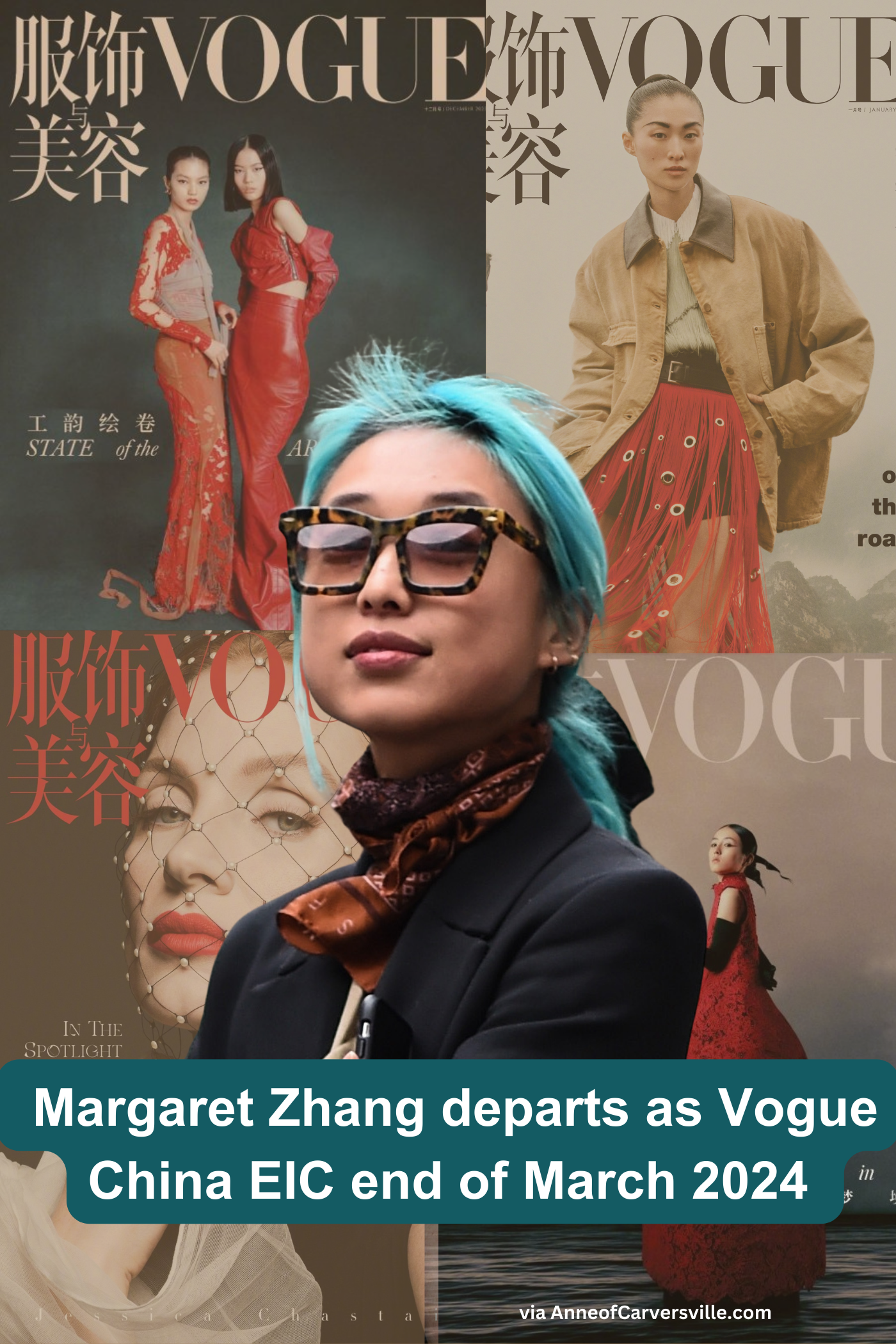Vogue China Editor-in-Chief Margaret Zhang Departs End of March 2024
/Margaret Zhang’s tenure as editor-in-chief of Vogue China will be a short one.
Condé Nast chief content officer Anna Wintour shared the news with Vogue China staff in an email on Friday that Zhang will be leaving the publication at the end of March when her contract expires.
Youngest EIC Ever
Zhang’s appointment to the prestigious position of editor-in-chief in February 2021 redefined the career skills propelling a professional talent into such a prestigious position. Not only was Zhang the youngest Vogue editor ever at just 27, she was the first influencer — and one with little magazine experience — to be named a top editor at any Vogue edition.
Additionally, Margaret Zhang was born to Chinese immigrant parents in Sydney and identified as an Australian and a talent who had never lived in mainland China.
New Skills Journalism
In that moment Condé Nast chief content officer Anna Wintour believed that Zhang could unlock a timely new journalistic approach in concert with her own intention to go global with a single universal content message across Vogues. The success of that strategy remains unclear, but it was a particularly volatile decision for China, an important economic power house with imperialist goals and an uneasy relationship with the West.
The size of the Chinese market is of tremendous signifance to luxury brands generally. One wonders if Wintour consulted with key players at Louis Vuitton, Dior, Gucci, Prada, Chanel and other key brands before the Zhang appointment.
Anna Wintour’s One World Content Vision
It’s worth noting that at Louis Vuitton, Prada and Dior, these brands are working diligently to honor Chinese culture in very specific ways. With Vuitton, the strategy extends to South Korea. It’s not even clear that the luxury market shares Anna Wintour’s vision of shared identical content across European Vogues, especially at a time when the emphasis on fine craftsmanship and honoring local and indigenous heritages is a cornerstone of LVMH branding.
WWD reports that Margaret Zhang’s lack of commercial business skills and also luxury brand relationships also contributed to her contract not being renewed.
In China luxury brands routinely paid $428,000 for a cover and Zhang failed to monetize the cover multiple times, according to WWD. At a time when Zhang wasn’t fulfilling the content commitments and schedules generated by her predecessor Angelica Cheung, other publications in China were soaring in excellence.
AOC has been thoroughly impressed by Zhang’s competition in China over the last year — titles like Wallpaper China, and Chinese editions of W and Marie Claire. Most often, they also soar over any editorial material produced by Condé Nast Europe as well.
